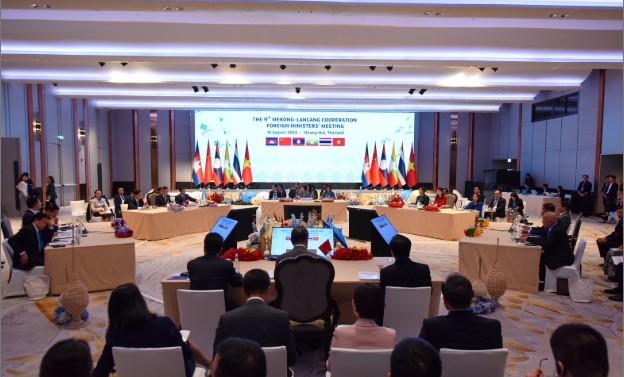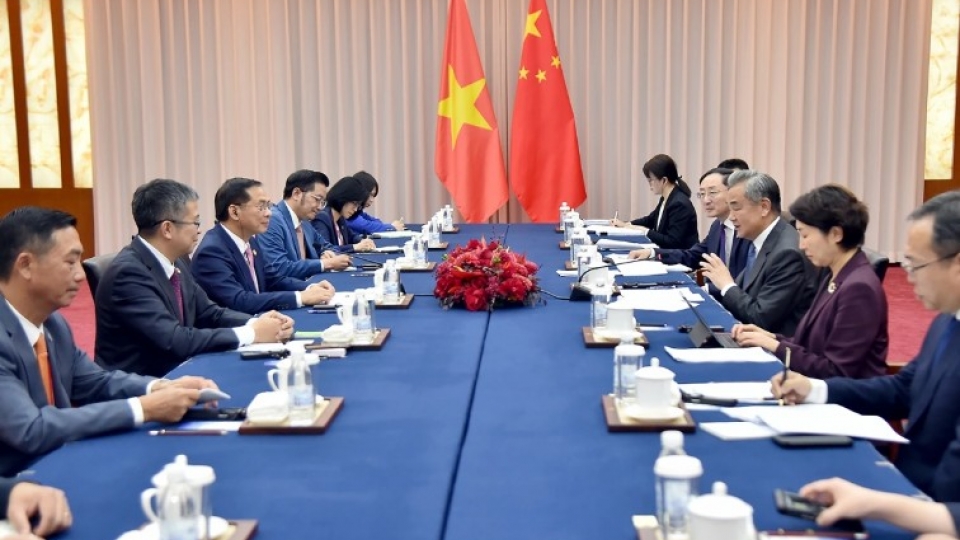Vietnam outlines three-pronged strategy for Mekong-Lancang Cooperation
VOV.VN - Vietnam will continue making active contributions to advancing Mekong–Lancang Cooperation (MLC) towards new milestones, aiming to build a peaceful and prosperous future for the people, Deputy Prime Minister and Minister of Foreign Affairs Bui Thanh Son said, outlining a three-pronged strategy for cooperation in the next “golden decade.”

He made the remarks at the 10th Mekong–Lancang Cooperation (MLC) Foreign Ministers’ Meeting, held on August 15 in Anning city, Kunming, Yunnan province, China. The event brought together foreign ministers from the six MLC member countries: Cambodia, Laos, Myanmar, Thailand, China, and Vietnam.
With the theme “Golden Decade: Staying Committed to Building a Better Community Through Solidarity,” the meeting reviewed a decade of MLC’s formation and development, and set cooperation directions for the next ten years. Member countries agreed that the MLC has been an effective sub-regional cooperation mechanism, making important contributions to sustainable growth and deeper regional integration.
The implementation of the MLC Action Plan 2023–2027 has boosted railway connectivity among member countries, advanced the MLC Innovation Corridor, strengthened cooperation in disaster response, and facilitated the sharing of hydrological data on the Mekong–Lancang River. Delegates took note of nearly 1,000 projects funded by the MLC Special Fund, which have transformed many localities in member states through clean water systems, sustainable agriculture, schools, and rural infrastructure.
Looking ahead, the ministers agreed on the need to upgrade cooperation to MLC 2.0 in the next decade. They identified digital transformation and innovation as new drivers for growth, calling for expanded cooperation in artificial intelligence (AI), smart agriculture, and human resource development for the digital era. They also laid stress on the importance of sustainable water resource management and climate change response, in close coordination with the Mekong River Commission, as well as strengthening both hard and soft infrastructure connectivity, supporting private sector participation in regional and global supply chains, combating transnational crime, promoting tourism, and enhancing people-to-people exchanges.
In his speech, Deputy PM Son called for comprehensive connectivity in transport, trade, and people-to-people exchanges, including accelerating the construction and operation of key infrastructure projects to ensure seamless logistics across the region; early signing of the ASEAN–China Free Trade Agreement (ACFTA) 3.0; building smart customs and border gates to simplify procedures; and opening China’s market to Mekong countries’ agricultural products to promote balanced trade. He also accentuated the need for greater political trust, public awareness of MLC, and youth participation in cooperation activities.
The Vietnamese diplomat urged the MLC to pioneer in science, technology, and innovation to drive fast and sustainable sub-regional growth. He proposed that the MLC Special Fund provide scholarships and internships at leading Chinese universities and high-tech companies for Mekong students and young entrepreneurs; support the establishment of high-tech laboratories in Mekong countries; and boost private sector involvement in innovation.
Son also reaffirmed the MLC’s firm commitment to sustainable development, with a focus on equitable and sustainable water resource management. This includes increased application of science and technology in sharing meteorological and hydrological data; closer cooperation between the MLC Water Resources Cooperation Center and the Mekong River Commission; implementation of the MLC Water Resources Cooperation Enhancement Initiative; and capacity building for Mekong–Lancang officials through secondments at the MLC Water Resources Cooperation Center funded by the Special Fund.
Son’s proposals received strong support from all member countries.



